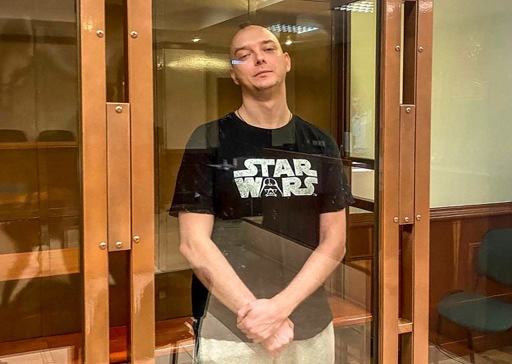A Russian court on Monday sentenced former Russian journalist Ivan Safronov to 22 years in prison for 'high treason,' reported Reuters. Incarcerated since 2020, Safranov, a 32-year-old who specialised in military issues, will serve his sentence in a "severe penal colony", according to the ruling by the Moscow City Court.
The verdict is more severe than courts in Russia would deliver in murder cases. It is considered yet another blow to media freedom in Russia, which has been under intense pressure due to the Kremlin after Russia invaded Ukraine in February.
Though handcuffed and detained in a glass cage, Safranov greeted the verdict with a smile for his supporters, according to an AFP journalist present in the room. His supporters sang "Vania (short for Ivan), we love you", while some shed tears.
The former journalist's lawyers immediately announced that they would appeal the conviction.
Verdict with a taste of vengeance
Safronov was previously a reporter for the Kommersant and Vedomosti newspapers and later became an advisor to the chief of Russia's space agency. He was arrested in 2020 and charged with revealing state secrets.
The classified information is said to have involved leaking information to a Russian-German political expert who is also incarcerated in Russia for 'high treason.' Furthermore, he relayed classified information to Czech intelligence service on Russia's military activities in Syria, as well as on arms deliveries from Moscow to Africa. Safronov strongly denies these allegations.
Related News
- Russian journalist risks 24 years in penal camp for high treason
- Russia wants to send gas to Europe via alternative route after Nord Stream 1 blockage
After he was arrested, the Kremlin called Safronov a "very talented journalist," but has denied involvement in the case.
Following Monday's verdict, multiple independent Russian news outlets urged the court to release Safronov. Meduza, Novaya Gazeta and TV Rain said in a statement that it was "obvious" that Safronov was being penalised for the way he covered Russia's military deals in a way that had annoyed Russia's Defence Ministry.
In a separate case on Monday, a court in Moscow removed the publishing licence for Novaya Gazeta, an independent newspaper that stopped publishing after Russia invaded Ukraine and imposed severe control on its media.

